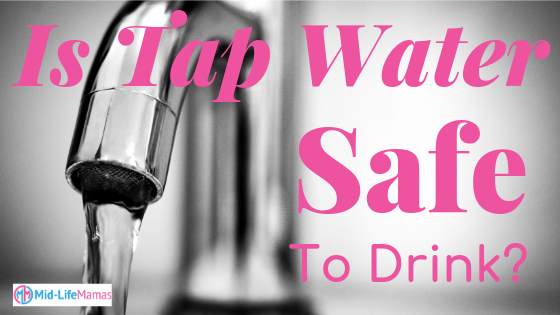
“Eww! Don’t drink water, fish make love in that stuff.” That’s one of my husbands “funny-isms” that make you go what? But I guess it’s true.
My husbands odd sense of humor aside, water has many important functions in the body:
That’s some major stuff that it’s doing for our bodies. Water rocks! With all of those important roles it carries out, we want to make sure we’re getting the best possible water we can to optimize these processes.
- Carries electrolytes that help convey electrical currents in the body
- Moistens tissues such as those in the mouth and eyes
- Regulates body temperature
- Protects body organs and tissues and lubricates joints
- Helps prevent constipation
- Carries nutrients and oxygen to cells
- Helps dissolve minerals and other nutrients to make them accessible to the body
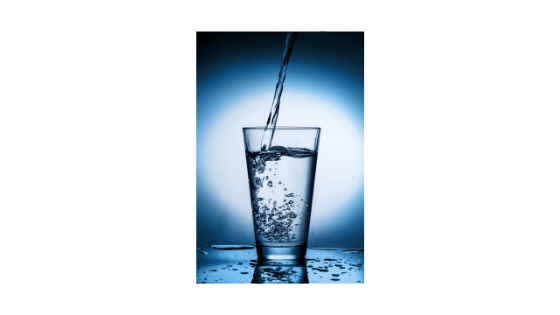
Some water is better than no water at all, but is your tap water safe to drink? What’s in our water that can harm us?
Tap Water
My best friend in college is from Brooklyn, NY and she used to say that they had the best water in the country. While I don’t doubt that (she’s always right) it may be the best municipal water in the country. But is tap water in general safe to drink.
Some of us take it for granted but we are so lucky to live in the U.S.A. This is for many reasons. But the fact that we can turn on our taps and get “clean” water to drink any time is something that we should all be grateful for every day.
When I say clean water I really mean clear water. There are a lot of problems with our municipal water supplies.
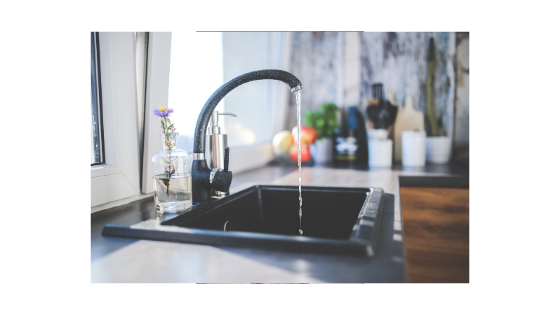
Problems With Tap Water
We like to think, or at least I do that government regulations are in place in order to protect us. So if Drinking Water has been regulated since 1974 shouldn’t it be safe by now?
That depends on who you ask, but I’m sure that it would be a lot worse if those regulations were not in effect.
So is tap water safe to drink? Here are 5 of the major problems associated with drinking tap water in the United States and other countries.
Pharmaceutical Drugs
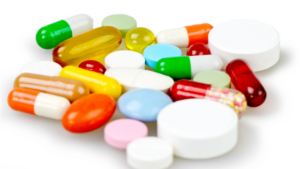
How did they get in there? Well, the first obvious way is that when people go to the bathroom and urinate. Whatever their bodies didn’t absorb or metabolize is excreted.
It then goes to the water treatment plant. It’s treated, then discharged into rivers, lakes and reservoirs. It’s then treated again before it’s put back into the public water system.
Another way it gets into the water is from people flushing meds down the toilet. For some reason people think that’s better than throwing them in the garbage. I’m not sure what the reasoning is, except that they don’t want family members or neighbors to take them.
If this is you then I recommend putting them in an opaque bag, or other container then put in the garbage.
Even better, see if there are any Drug take-back programs in your area. These programs allow people to drop off their unused medications at central locations. This serves two purposes; they keeps unused drugs out of the water and prevent opioids away from people who used them for illegal purposes.
Doesn’t The Drinking Water Plant Remove Them?
Nope, pharmaceuticals are neither primary nor secondary drinking water standards. Meaning that they don’t have to be tested for, so it’s unknown specifically what’s there.
On a positive note, some studies that have concluded that the levels are so low they have a negligible health impact.
On a negative note, there have not been enough studies to conclude that it’s safe. Some studies have shown adverse effects to aquatic life.
The good news is that you don’t have to drink tap water untreated from your spigots . You can drink spring water, purified water or add a water treatment system to your home.
Heavy Metals
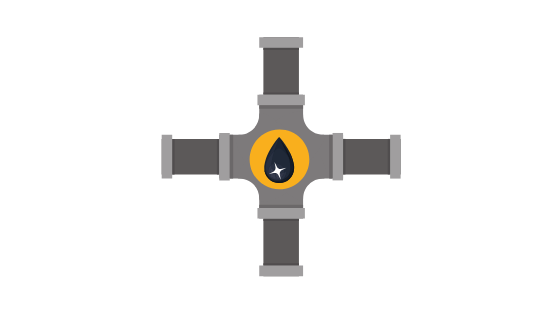
And I don’t mean music.
Lead, copper and other heavy metals can contaminate our water supplies by leaching from metal piping or from industrial processes. Heavy metals that get into the bloodstream can cause neurological disorders, especially in children.
Total chromium levels are required to be tested for in drinking water, but are considered maximum contaminant level goals and are not enforceable by the EPA.
The two common forms of total chromium are Trivalent chromium (chromium-3) and Hexavalent Chromium (chromium-6).
Chromium-3 is an essential human dietary trace element associated with carbohydrate metabolism and hexavlanet chromium is usually produced by industrial processes
Hexavalent Chromium
Is a common form of chromium found in drinking water. Unfortunately there’s not a specific federal guideline for chromium-6 just total chromium. Chromium 6 is thought to be a carcinogen.
Fortunately modern municipal water treatment systems remove a lot of heavy metals, and different filtration systems can be purchased for your home to remove even more.
Carbon filtration systems are the least effective in removing heavy metals. But home units that utilize reverse osmosis and ion exchange systems are effective.
Chlorine
Is a powerful disinfectant used by most if not all municipal drinking water plants.
It has been used to kill bacteria and viruses that commonly grow in water supply reservoirs for over a hundred years according to the American Chemistry Council. The reason it works so well is because it’s highly toxic.
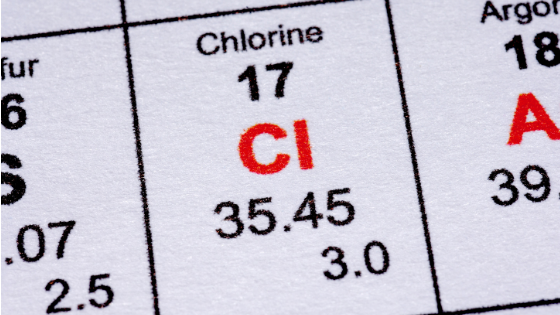
It’s use has stopped the spread of many diseases throughout time, but does it also have negative effects on the human body?
According to the Environmental Protection Agencies (EPA) and the Centers for Disease Control and Prevention it’s safe because the levels are low.
But some scientific research shows it’s use in drinking waters results in an increased cancer risk while other studies show no correlation. So what’s mama to do? Any chance of an increased risk in cancer is too much for me, how about you?
Chlorine Impacts To The Gut Biome
If you haven’t heard the term gut biome a.k.a. Gut Microbiota yet, you have now and will start hearing the term in many other places.
We’re so paranoid about bacteria these days we forget the huge role that bacteria plays in our health and survival.
So while chlorine is disinfecting your water it is also disinfecting (killing) the good bacteria in your digestive system.
According to Harvard Public Health we have approximately 100 trillion bacteria inside our digestive system. The friendly gut bacteria are super important to the digestive system. Without them we would not be able to break down and absorb nutrients from our food.
The good bacteria kill the bad bacteria along with other harmful microorganisms. A diversity of healthy gut microbes helps prevent obesity, diabetes, heart disease and inflammation associated with autoimmune diseases.

When the bad bacteria overwhelm the good bacteria an imbalance can occur known as dysbiosis and has been linked to insulin resistance, weight gain, inflammatory bowel disease and colorectal cancer.
To keep your gut bugs happy be sure to use a water filtration system before drinking. The most common household water filters use activated carbon which is usually made of coconut shells, wood or coal and is said to remove 95% or greater of the chlorine.
On a side note think twice about taking antibiotics if not necessary because their overuse can cause dybiosis.
Fluoride
Not only is it in your toothpaste it’s also in your water. If they put it in both of those things then how is it bad?
Well that depends on who you ask. The American Academy of Pediatrics recognizes it as an important nutrient for healthy teeth. They considers it an everyday fortifier to improve our health like iodine in salt and Vitamin D to milk.
On the other side, studies have looked at the potential links between water fluoride levels and cancer, damage to tooth enamel and immune system suppression to name a few. And the opinions of the results are mixed in the medical community.
Just like a lot of things in this world there’s “his story, her story and the truth,” so if this is a concern of yours, or it is now thanks to this post, check out these resources
- American Cancer Society
- American Academy of Pediatrics
- Harvard Public Health
- National Institute of Health
If you’re on the “not in my water” side of things and want to remove it a regular carbon filtration system won’t work. The most effective method for removing fluoride is a reverse osmosis water treatment system.
Is Your Tap Water Safe To Drink?
The Environmental Working Group has a Tap Water Database. Put in your zip code and click on your specific water treatment plant (that’s who sends you a bill each week). It will show you what contaminates are detected in your drinking water and their hazards.
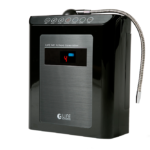
You can use this information to determine what kind of household water treatment system you should purchase. The most effective types such as ionization systems are also the most expensive
Everyone should be grateful that you can open your tap and “clean” water comes out. But keep in mind there are contaminates in there that you can’t see. They can negatively effect the health of your family. Keep them safe by purchasing a water treatment system for your home.
If you prefer to drink spring or purified water please buy in bulk containers, not individual single use plastic water bottles. According to the Container Recycling Institute more than 60 million plastic bottles end up in landfills and incinerators every day. Help Save The Planet.
Additional References
EPA Drinking Water Standards Regulation
Clean Water Action
Pure Water Products

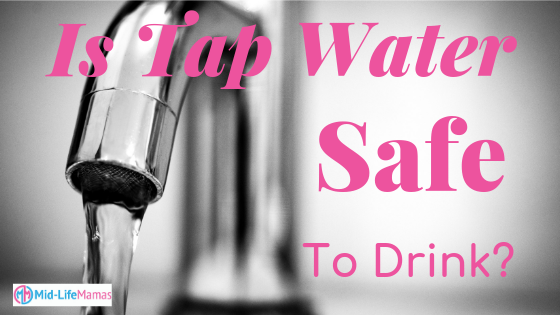



Very interesting read, Anne, and it helped to solidify for me why I don’t drink my tap water. Although I did run it through the Tap Water Database as you suggested and it was quite clean. Thanks for educating us all, and I agree with your comment about buying water in bulk and not in the small bottles!
Thanks for reading, I’m glad your water is quite clean according to the Database, because this is also the water you’re bathing in unless you have a filter.
Wow! I’ve got to do some serious digesting to do with these facts! Quite a nice read. I suppose it’s not just the ‘taste’ or lack of it, that we have to consider about water.
Thanks so much.
Thanks for reading and glad I gave you some water for thought as compared to food for thought.
I love all of the great info in this post! I hadn’t even thought of the chlorine affecting the gut, very interesting! I love my Berkey water filter and my chlorine shower filter as well, for this. Thanks! Julie@gogreenmamas.com
Thanks. I’m not familiar with Berkey water filters, I’ll have to check it out and your site, I’m a green mama too!
Wow, this is a lot of great information! I feel fortunate to have water available to drink. We don’t always know if it is safe, however. Thanks for these resources!! I have well water and I love the taste, but haven’t had it tested.
Thanks for the kind words. I highly recommend that you get your well water tested. We’ve had a lot of issues here in S. Florida.